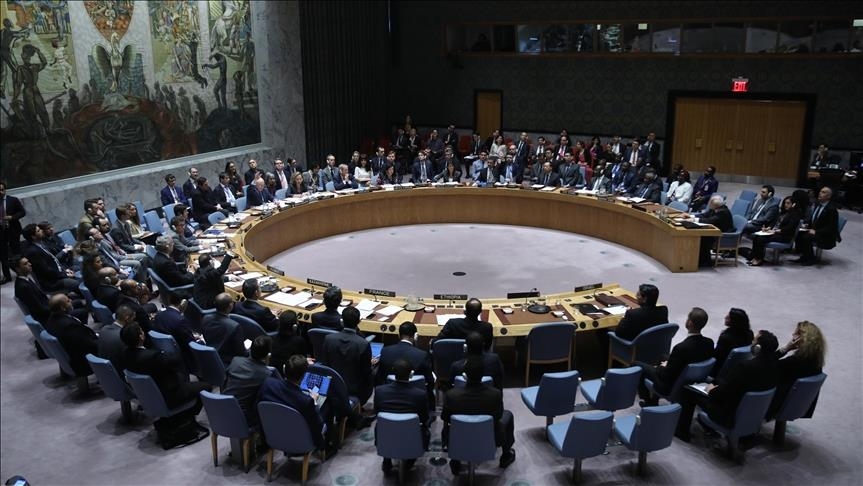 UN Security Council
UN Security Council
HAMILTON, Canada/ISTANBUL
The UN Security Council on Friday vetoed a draft resolution to extend the 2015 Joint Comprehensive Plan of Action (JCPOA) on Iran's nuclear program until April 18, 2026.
The draft resolution, submitted by Russia and China, aimed to also delay the "snapback" mechanism of sanctions against Iran, which is set to take effect on September 28, that France and the UK had triggered.
The draft resolution received only four votes in favor, as it received nine votes against with two abstentions.
Nine members of the council, namely the UK, France, Denmark, Slovenia, Sierra Leone, Panama, the US, Greece, and Somalia, voted against.
Speaking before the vote, Russia's deputy envoy in the UN, Dmitry Polyansky, said the draft resolution "gives room for seeking an acceptable solution for all."
"This is a moment of truth for each member of the Security Council, and we hope that you colleagues will make the right choice," he said.
China's deputy UN envoy Geng Shuang recalled the US and Israel's strikes against Iran's nuclear facilities, saying that it further complicated the "Iranian nuclear issue."
"The draft resolution is not about picking sides between Iran and the E3," he said, adding that the resolution aims "to get more time for diplomatic efforts and create conditions for a political solution."
Calling on all council members to vote in favor, Geng urged them to "opt for a technical extension rather than reimposing sanctions, for dialogue and negotiation rather than division and confrontation."
The German Foreign Office welcomed the outcome of Friday’s vote, writing on the US social media company X: “Today, the UNSC clearly rejected the draft resolution put forward by Russia & China. This is a strong signal of support to the snapback process."
"Snapback is to become effective tomorrow at 8 pm EDT. It is not the end of diplomacy. The E3 remain committed to a diplomatic solution," it said.
The UK, France, and Germany, known as the E3, are signatories to the 2015 nuclear agreement, which placed limits on Iran's nuclear activities.
Under the pact, endorsed by the UN Security Council, Iran agreed to limit its uranium enrichment and allow international inspectors to verify that its nuclear program served only peaceful purposes.
After US and Israeli attacks on Iran, Tehran halted cooperation with the UN nuclear watchdog, claiming that the International Atomic Energy Agency (IAEA) was biased against it.
On Aug. 28, the E3 countries triggered the "snapback" mechanism under UN Security Council Resolution 2231, which will restore sanctions in 30 days if Iran fails to meet its obligations.
Anadolu Agency website contains only a portion of the news stories offered to subscribers in the AA News Broadcasting System (HAS), and in summarized form. Please contact us for subscription options.







